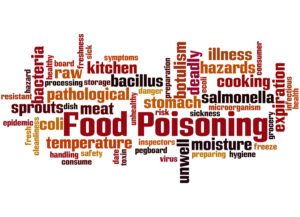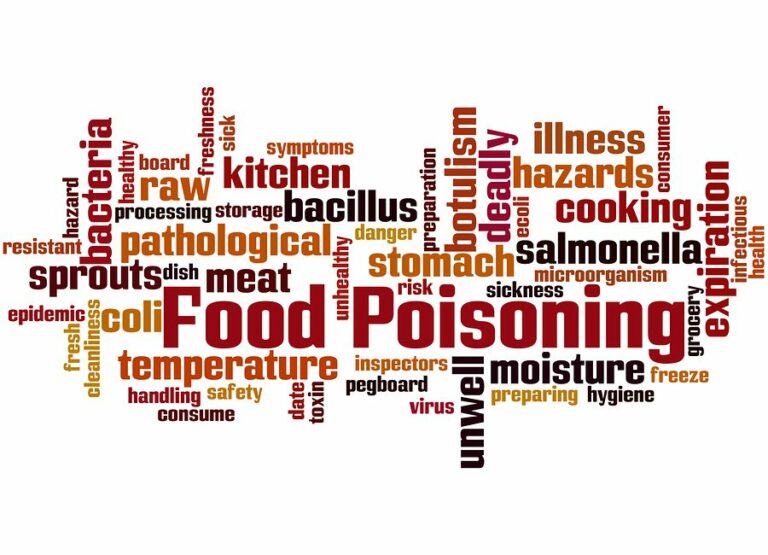Elderly adults are at a greater risk than other age groups for food poisoning. Because the immune system weakens with age, a senior’s body may not be able to fight off infectious organisms as well as it once did. Where younger adults may struggle for a few days and recover quickly, an elderly person can become quite sick with food poisoning. They can even become sick enough to be hospitalized. Family caregivers and home care aides need to take every precaution to reduce the risk of their aging relative from getting food poisoning.

What is Food Poisoning?
When food that is contaminated by organisms is ingested, it can cause negative health reactions throughout the body. Symptoms of food poisoning include cramps, fever, diarrhea, vomiting, nausea, and chills. Usually, the symptoms show up just a few hours after eating the contaminated food. It usually takes two to three days for the body to fully overcome the food poisoning.
There are several reasons why food becomes contaminated with viruses, bacteria, and parasites. When cooked or raw food has been left at room temperatures for too long, it becomes the ideal home for these harmful organisms. Sometimes, food is tainted by human or animal feces when food preparers don’t wash their hands before cooking or serving food.
How Food Poisoning Affects Seniors.
Because seniors are often dealing with weakened immune systems and chronic conditions that may affect their overall health, they may not be able to resist food poisoning well. One of the most dangerous results of food poisoning is dehydration. Elderly people are more sensitive to the loss of body fluids already, so when a bout of food poisoning hits, they can lose fluid, salts, and more very quickly. Combine that with diarrhea and food poisoning can be very serious and even lethal.
Seniors can also experience fever with food poisoning, often for several days in a row. Other symptoms that can cause problems include severe abdominal cramps, rectal pain, bloody stools, bloating, gas, and more. It’s always a good idea for seniors to see their doctor for treatment when they are struggling with food poisoning.
Treating Food Poisoning in Seniors.
Treating food poisoning at home means that family caregivers must make sure that their elderly relatives are taking in lots of fluids to combat the dehydration. Broth, fruit juice, popsicles, and ginger ale are good things to start out eating and drinking. If the elderly adult is up to it, the caregiver or home care aide can give them soft and mild food like bananas, mashed potatoes, toast, crackers, plain rice, and cooked carrots. The doctor may have the aging adult on antibiotics or other medicine to help them recover faster.
When it comes to keeping elderly relatives healthy and well, family caregivers have a lot of responsibility. If the elderly adult does develop a case of food poisoning, there are many ways that caring family members can help them get back to optimum health.
If you or an aging loved one needs home care in Fair Oaks, CA, remember Senior Home Care Services. Call us at (916) 514-7006 for more information.
Source:
https://www.nursingtimes.net/news/behind-the-headlines-archive/food-poisoning-on-the-rise-in-elderly/5003070.article
- Kitchen Tools That Make Eating Easier for Seniors - April 25, 2025
- Helping Seniors Reduce Health Anxiety - April 18, 2025
- Why Should Seniors Consider Adding Soy to Their Diets? - April 7, 2025


